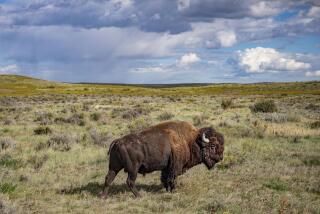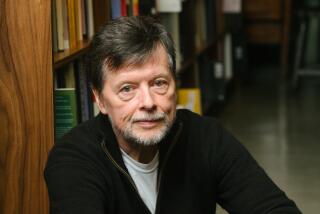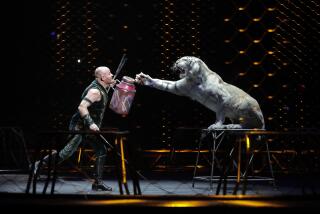Buffalo Tour Misspent Money, Donor Charges
- Share via
SIOUX FALLS, S.D. — Jennifer Easton says she just wanted to help Indian tribes raise buffalo on their reservations.
Instead, she says, she has little to show for the $500,000 in stock she donated in November, 1991, to James Swan, who said he would organize a concert tour and raise more money for tribal buffalo projects.
Swan’s Buffalo Tour has bought computer equipment and paid salaries. But not one note of music has been played, and tribes haven’t seen much money for buffalo restoration, the stated purpose of the project.
The Buffalo Tour gave $50,000 to the Inter-Tribal Bison Cooperative, which represents 24 tribes interested in raising buffalo on tribal lands. But Easton said Swan agreed that a much larger portion of her donation--$300,000--would go directly to buffalo restoration projects such as the cooperative.
Swan’s lawyer, Jerry Green, said there was no such agreement.
Swan said that the project is going slower than he originally anticipated.
“All I can say now is we’re doing the best that we can,” Swan said in a telephone interview from his Mill Valley, Calif. office.
Swan said he is working to get national distribution for the video and is trying to raise money with a catalogue of buffalo-related products.
Attorney Patricia Cummings has filed a 100-page civil complaint with the California attorney general’s office, asking officials to investigate allegations that Swan and his Institute for the Study of Natural Systems mismanaged Easton’s donation.
The prospectus for the Buffalo Tour looked good because it named Indians such as University of Colorado Prof. Vine Deloria Jr., actor Floyd Red Crow Westerman and former U.S. National Park Service official William Fields as members of an advisory board, Easton said. But Deloria, Westerman and other Indian board members quit after Swan would not listen to their ideas, she said.
Green said the advisory board was never meant to have any power.
“What we’ve got here is a donor who wanted to call the shots as far as strategy for developing the tour and some advisers who became self-interested, who had their own organizations that wanted to play a role in it,” Green said.
Not so, Easton said.
“I had an ancestor that came over on the Mayflower, and the indigenous people here supplied him with the wherewithal to get through the first winter. Without their help, he would have died,” says Easton, a businesswoman and investor from Stillwater, Minn.
“This was my way of giving back and honoring that gift to my ancestors. And that’s why I think what has been done is a dishonor to the gift, because it was a heart gift.”
More to Read
Sign up for Essential California
The most important California stories and recommendations in your inbox every morning.
You may occasionally receive promotional content from the Los Angeles Times.













